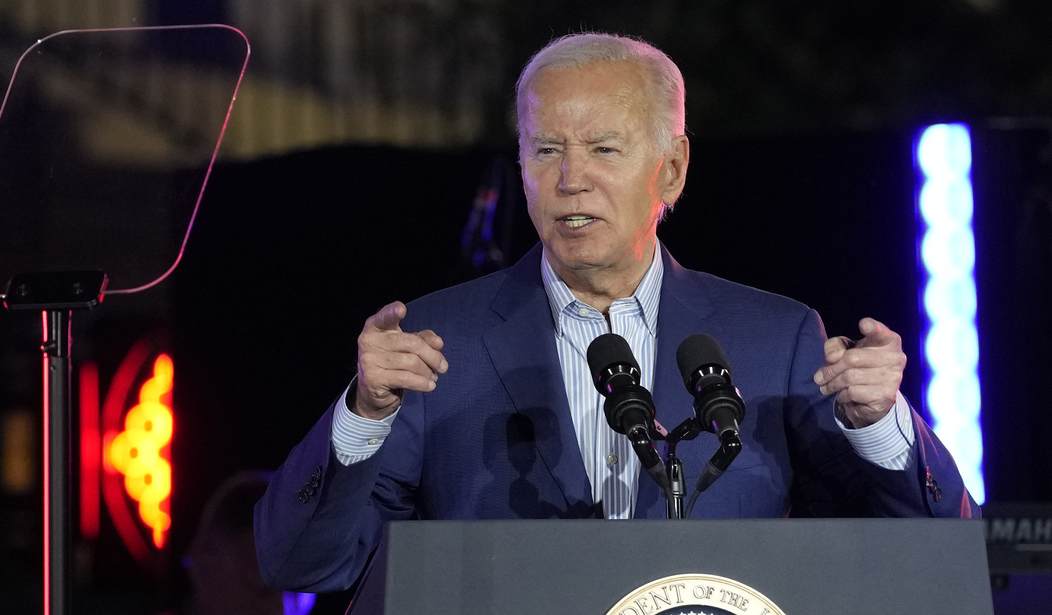Government overspending, an activity the Biden administration has taken to a new level, has sent the country into an inflationary spiral. Through trillions of dollars in COVID-19 relief programs, infrastructure spending, vote-buying student loan forgiveness programs and a political "Build Back Better Agenda," the White House has flooded the economy and decimated consumers' purchasing power. We're paying more and getting less for everything from energy to food.
According to the House Budget Committee, the average family of four is paying around $1,143 more each month than it was in early 2021 for the same goods and services; this includes increased gasoline costs. Rather than reversing course, President Joe Biden is telling voters the private sector is to blame and that he has the answers. He's doubling down by proposing more stifling, job-killing regulations to "fix" the problem -- regulations which will inevitably send inflation to new heights.
Energy prices are a core component of inflation. If it costs more to ship goods, prices increase. Yet the president began executing an anti-energy agenda within hours of being sworn in. Although prices were at record lows before he took office, by 2022, consumers were paying 50% more for gas -- no surprise after canceled energy leases, halted pipeline construction and new regulatory burdens on energy exploration.
Constrain supply, and prices will rise. But that hasn't stopped Biden from blaming energy companies -- the same companies that reduced prices to record lows in relatively freer markets during the Trump administration. He's now threatening them with tax hikes, which would be passed on and increase consumers' costs even more.
Recommended
The government's fiscal irresponsibility has now famously led to inflation and Federal Reserve interest rate hikes, which in turn jeopardize the American Dream of home ownership. The average 30-year fixed mortgage rate, which was under 3% in late 2020, has skyrocketed to nearly 8%. This means the average home purchaser now needs to earn an additional $47,000 per year just to afford a home compared to four years ago. Some economists correctly argue that the "higher cost of money," which isn't measured in inflation indexes, explains why people continue to be so upset about inflation despite its statistical decline.
Here again, the president shifts blame -- this time to his predecessor, falsely claiming the inflation rate was near double digits when he took office.
Don't forget about renters, who, like homebuyers, are no better off now than they were before Biden's activist regulatory spree took hold. Between March 2020 and July 2023, the national median monthly rent rose from $1,614 to $2,038, marking a 26.26% increase. Over the last four years, rental prices have surged by approximately 29.4%, with an average annual increase of about 7%.
Once again, however, the Biden administration found a convenient and private-sector scapegoat. It has unleashed the power of the Department of Justice on RealPage, a U.S. software provider that helps landlords determine market pricing for their rental properties.
The existence of a company like this shouldn't be controversial. Almost every industry today uses a similar tool, from grocery stores to airlines, to make better decisions about pricing their inventory based on supply and demand. But the administration needs someone to blame, and there are not many other viable targets for it to shoot at.
It's nothing new to see politicians blaming others for the error of their ways. Long gone are the days of President Harry S. Truman's "The buck stops here" philosophy. Our current president would be more successful if he reversed course, ending the spending orgy that's undermining the American family and restoring a sense of fiscal responsibility to the nation's budget.
We are witnessing the success of doing just this in Argentina, a nation which has long struggled with inflation, excessive government spending, and eroding economic stability and prosperity for its people. Newly elected President Javier Milei has imposed fiscal restraint upon the government, shutting down agencies and programs that were once considered sacrosanct. As a result, inflation is down, income is up and the nation is quickly becoming a shining light of economic prosperity after decades of darkness and decadence. Its economy is growing for the first time in decades.
Some of Milei's platform -- focused on reducing the size of government, cutting unnecessary expenditures, and implementing free-market policies -- offers a promising path toward economic revitalization. Perhaps now is the time for the United States to follow its lead.

























Join the conversation as a VIP Member